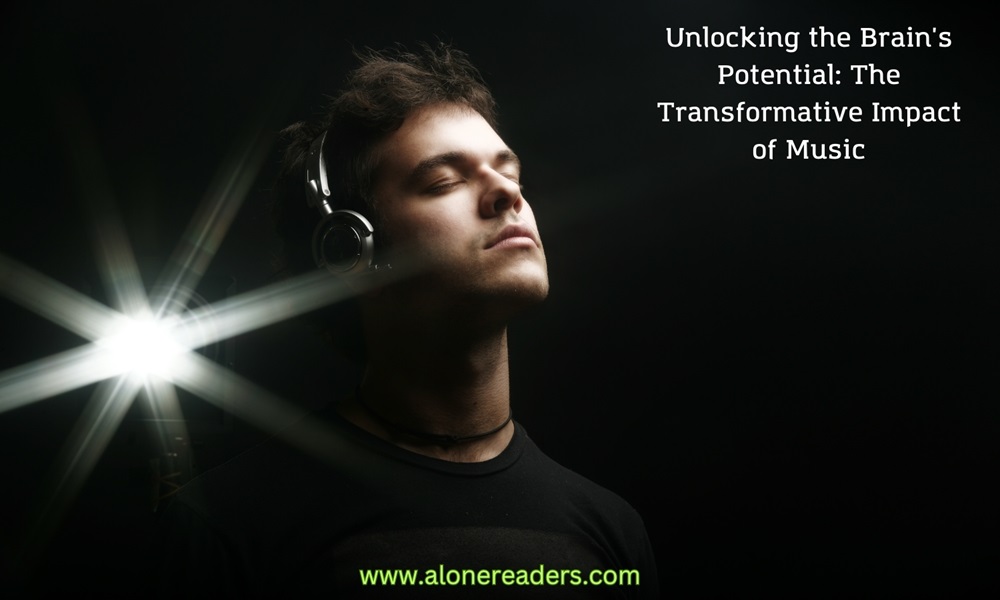
Music has long been an essential part of human culture and experience. Beyond its ability to entertain and inspire, music possesses a powerful influence over the human brain, affecting our emotions, cognitive abilities, and overall mental health. This article delves into the intricate relationship between music and the brain, exploring how various aspects of music from rhythm to melody impact our neural processes.
The power of music to evoke emotions is perhaps its most universally acknowledged effect. Listening to music can induce a wide range of emotions, from joy and excitement to sadness and nostalgia. This emotional response is driven by the brain's limbic system, which is responsible for processing emotions. When we hear music, the limbic system responds by releasing neurotransmitters like dopamine, which is associated with pleasure and reward, thus creating feelings of enjoyment and satisfaction. This is why a particular song can lift our spirits or bring us to tears, resonating with our personal experiences and memories.
Moreover, music's impact on the brain goes beyond mere emotional arousal; it also influences our cognitive functions. Research has shown that music can enhance memory, attention, and even intelligence. For instance, the 'Mozart Effect,' a term coined from studies suggesting that listening to Mozart's music may temporarily improve certain types of mental tasks, illustrates the cognitive benefits of music. While the effect may not be exclusive to Mozart or even music in general, it highlights how music can stimulate cognitive abilities. Additionally, learning to play a musical instrument has been linked to improved memory and attention skills, as it requires the integration of motor, auditory, and visual skills.
The brain's plasticity – its ability to change and adapt – is also positively influenced by music. Music therapy, for example, is used to rehabilitate people with cognitive disorders like Alzheimer's disease and stroke. In these cases, music can help in the recovery of lost memories and improve the neural connections in the brain. Furthermore, for stroke patients, music therapy can aid in the development of new neural pathways, facilitating recovery and the regaining of lost abilities.
Music's rhythm and beat have a profound effect on the brain's motor system. The motor cortex, which is responsible for coordinating movement, is activated when we hear rhythmic patterns in music. This is why we often find ourselves tapping our feet or nodding our heads to the beat of a song. For individuals with motor disorders, such as Parkinson's disease, music with a clear beat can provide a temporal cue, helping them to improve their gait and walking speed. This illustrates how music can be a powerful tool in physical rehabilitation.
The influence of music extends to stress reduction and mental well-being. Listening to calming music can lower cortisol levels, a hormone associated with stress, and can help in reducing anxiety and depression. The relaxing effect of music is often utilized in therapeutic settings, where it aids in creating a calm and soothing environment for patients undergoing treatment.
In educational settings, music has shown its potential in enhancing learning and concentration. Background music, when played at a moderate volume and tempo, can create an optimal environment for learning by improving mood and motivation. For children and adults alike, music can be a powerful aid in learning new information and in maintaining focus during tasks.
Socially, music plays a vital role in creating and strengthening communal bonds. Group musical activities, like choir singing or band performances, require coordination and cooperation, fostering social connections and empathy among participants. This communal aspect of music is not just a cultural phenomenon but is rooted in our neurobiology. Engaging in group music making can activate the brain's mirror neurons, which are involved in empathy and understanding others' actions and intentions.
In conclusion, music's impact on the brain is multifaceted and profound. From evoking emotions to enhancing cognitive functions, from aiding in physical rehabilitation to promoting mental well-being and social cohesion, the power of music is undeniable. As research continues to unveil the complex ways in which music affects our brain, it becomes increasingly clear that music is not just a source of entertainment but a key element in our psychological and neurological health. As we listen to, create, and engage with music, we are not only enjoying an art form but also actively shaping and benefiting our brains in countless ways.